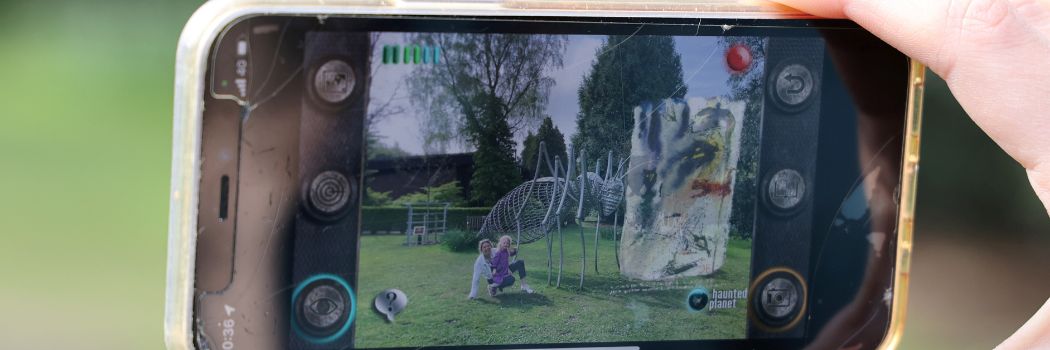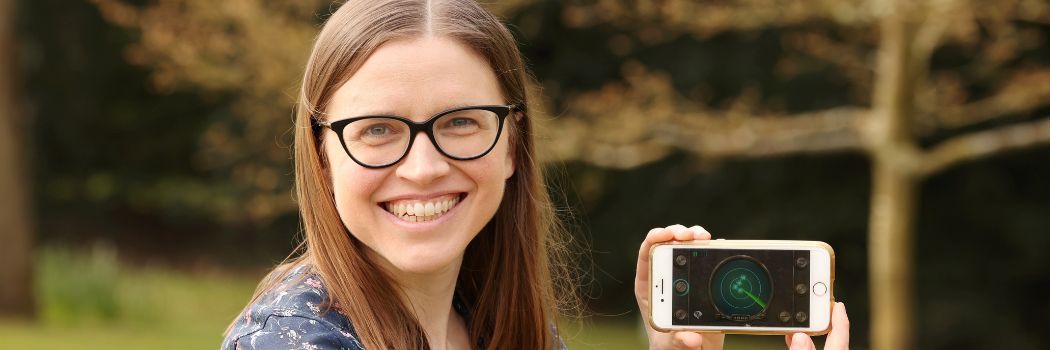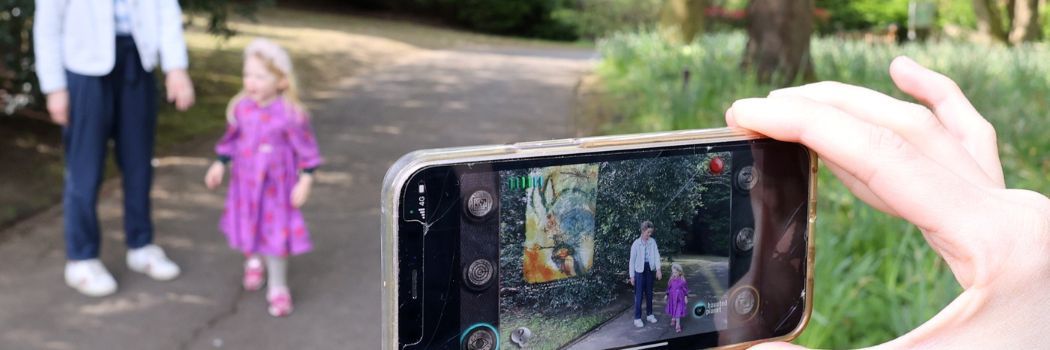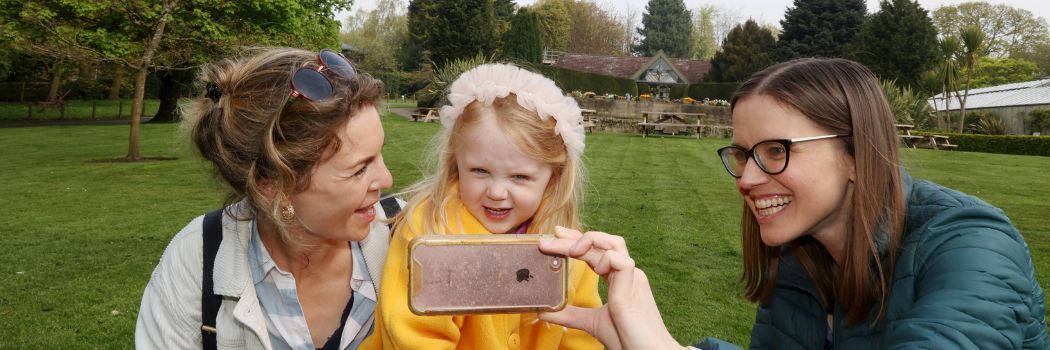
Our Botanic Garden just got "curiouser and curiouser" with the introduction of an interactive family game based on classic children's story Alice's Adventures in Wonderland.
A mobile phone app will bring Lewis Carroll's much-loved book to life at the garden on Durham's South Road.
Visitors can use the Alice Dalí AR app to search for art and music based on Lewis Carroll's much-loved book.
Augmented Reality
Augmented Reality technology allows visitors to see 12 paintings by renowned artist Salvador Dalí, inspired by Alice in Wonderland, on their phones at different points around the garden.
Dalí's artwork is accompanied by newly composed piano music alongside narrations from the story itself.
The game, which officially launches this Saturday 4 May, will be a permanent fixture of the Botanic Garden.

Dr Kelly Jakubowski, Associate Professor of Music Psychology, in our Department of Music, with the Alice Dalí AR app at our Botanic Garden.

Augmented Reality technology allows visitors to see 12 paintings by renowned artist Salvador Dalí, inspired by Alice in Wonderland, on their phones at different points around the garden.

The Alice Dalí AR app game, which is a permanent fixture of the Botanic Garden, forms part of a research study, testing its intergenerational impact on children and their parents or carers.
Augmented Reality digital technology is a fun and interactive way to engage with art and music inspired by Alice's Adventures in Wonderland, and the Botanic Garden is an ideal setting for this. The research we will be carrying out, based upon people's experiences of using the app, will explore the benefits games like this have on learning about new art and music styles whilst engaging with new technologies.
Intergenerational impact research
Designed particularly for children aged five to 12, the game forms part of a research study, testing its intergenerational impact on children and their parents or carers.
It works via GPS navigation, through which mobile phone users follow a navigation screen to find virtual artworks within the garden.
The musical soundtrack serves as a clue that the user is getting close to a piece of virtual art, setting the scene for the art to appear on the screen.
Users can then take photos of the virtual art and save these within a storybook.






